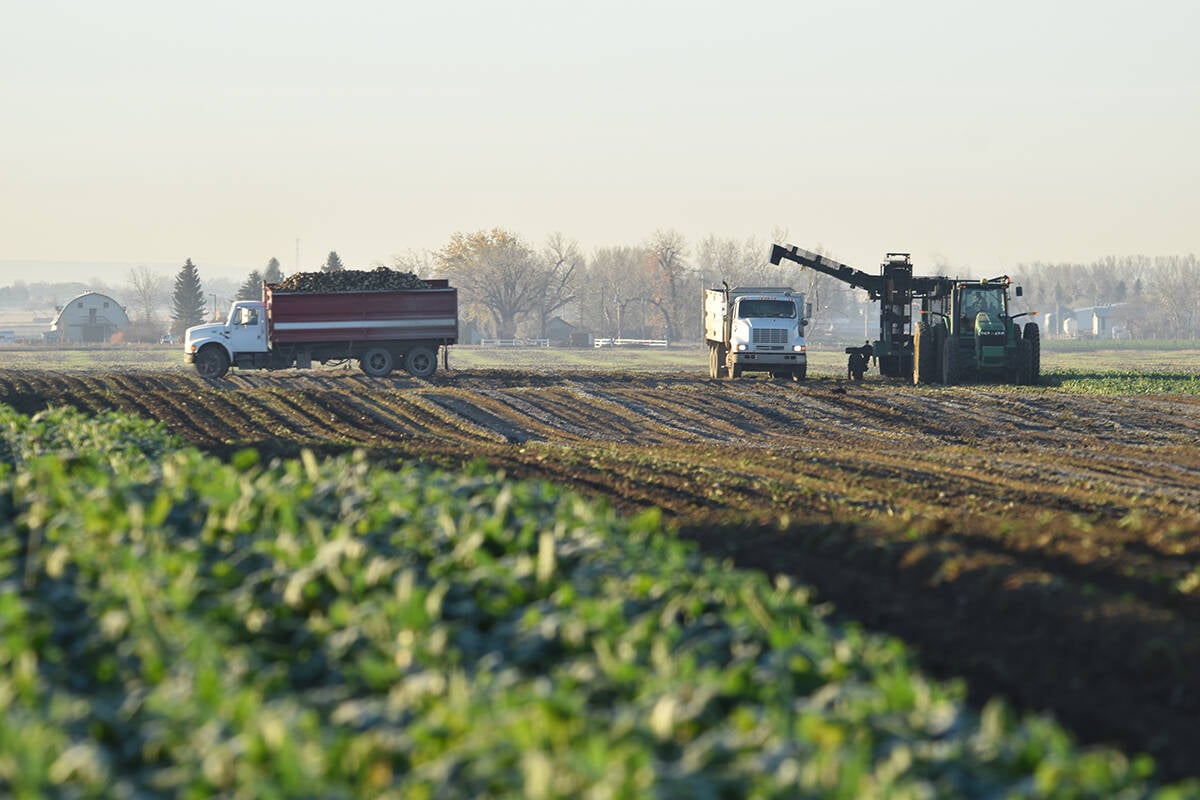Farmers and grain companies will face higher trucking costs this winter because of soaring diesel prices, says a major prairie grain hauler.
“I don’t see any way around it, but I don’t know where they’re going to get it from,” said Wayne Nicholls, president of Biggar Transport.
According to Alberta Agriculture, diesel prices shot up 22 percent between this September and last September.
Trucking firms have been adding one to three cents a litre to their weekly fuel bills, compounding other serious hardships facing the agricultural industry, said Nicholls.
Read Also

Canada the sole G7 nation without a Domestic Sugar Policy to aid local sugar beet production
Canadian sugar beet industry vastly different to US with free-market system compared to protective government-regulated sugar program
A shortage of drivers has led to higher wages and a shortage of steel has added $6,000 to the cost of a Super-B grain trailer.
“To be very honest with you, a lot of us are starting to get almost to the point of teetering,” he said.
To compensate for the higher fuel bills, Biggar Transport is seeking a freight rate hike of about 15 percent from the farmers, processors and input providers it hauls for.
“We’re in some serious negotiations right at present with a number of fairly substantial customers of ours where we’re saying, ‘hey guys, there’s no arguing about it anymore.’ “
Nicholls admitted it is akin to squeezing water from a stone, especially when it comes to telling farmers who harvested a crop of feed wheat that it’s going to cost them more to take that poor crop to market.
“Believe me, it’s not easy. And part of it is you can relate to where they’re at. They’re not bluffing. I mean, they have a problem.”
Terry Hildebrandt, president of the Agricultural Producers Association of Saskatchewan, said the problem is that farmers can’t pass on rising costs to anybody down the line.
“I don’t think you’ll see bread go up and be nailed to the price of fuel.”
He doesn’t doubt trucking margins have shrunk but while transportation firms have the ability to charge more or find other ways to increase revenue, farmers are facing lower commodity prices across the board.
And while grain handlers can look forward to handling high volumes of product from a plentiful harvest, farmers will struggle to afford further input costs because of the dismal market outlook for their crops.
Agricore United spokesperson Radean Carter said the increase isn’t being heaped entirely on the backs of growers. Producers who signed delivery contracts earlier in the year will not face immediate fuel surcharges because freight costs are built into many contracts.
She said Agricore’s trucking costs have gone up five or 10 percent since those contracts were signed, or about $1.50 per tonne. In some cases, the grain company absorbs the additional costs. In others, trucking firms are on the hook.
But Hildebrandt said many farmers don’t have contracts or they have contracts that specify grain must be delivered to the plant, which means they will be paying the additional costs.
And if Nicholls has his way, the freight bill will keep climbing.
Now, depending on the customer, Nicholls recovers between 14 and 57 percent of rising diesel fuel costs through higher rates.
“We’re paying our bills and going ahead but we’re not making any profit.”















